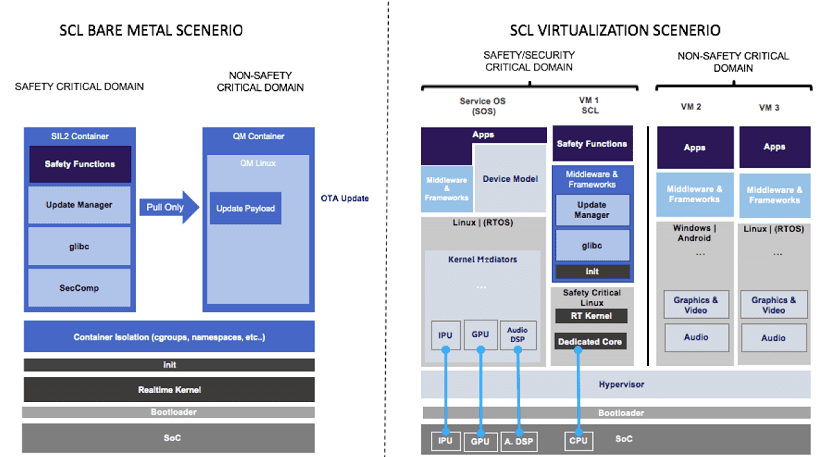
In a previous article we talked a bit about the Linux distribution in which the Intel development group is working, with which they intend to launch an optimal system for their hardware and better its performance within the Linux ecosystem.
In the same way in parallel Intel is working on another Linux distribution which is based on "Clear Linux", but this Linux distribution is not for use in the home, office or educational environments, but rather they intend to reach another field with it.
Imad Sosou, Vice President of the Intel Software and Services Group (SSG) and General Manager of the Open Source Technology Center, recently published an article entitled »A letter to the industry«, in which he announces the development of Intel's critical security.
Imad said when robots start working in the factory and driverless cars and drones they start hitting the road, security becomes critical.
Some manufacturers want to build specialized operating systems (as specific drone systems) right from the start to meet the target security needs, but such solutions are costly and unsustainable.
Intel is working on a compatibility solution, a Linux distribution which can be used from driverless cars to drones.
This project is called "Intel® Safety Critical Project for Linux * OS". However, Intel is not developing from scratch, rather it is based on the existing Clear Linux distribution.
Safety is first
This project will help manufacturers of autonomous and safety-critical systems to move from a system created using sometimes thousands of microcontrollers and other electronic control units, to one that takes advantage of the power, performance and security of a multi-core solution.
In this way the people of Intel intends to include this new panorama within its catalog, in which many companies and entrepreneurs have already begun to be interested and create their own products and systems for this.
Imad Sousou says:
“The Intel Safety Critical Project for Linux * OS works to address key gaps facing future security-critical system developers, such as scalability of large multi-core systems, secure upgrades with the latest security fixes, and reusability.
Providing a maintained source baseline for key Linux * operating system components, along with recommended tools and processes for delivering highly reusable security documentation and updates.
This will help the community accelerate the development of security critical systems.
This Linux Security Critical Project is an open source project that will combine the best of the Linux ecosystem under the innovative development practices of the Clear Linux * operating system for Intel Architecture.

The project Contains in-depth knowledge of hardware and security evidence and analysis library who accompanies him and what provides the building blocks needed to assemble and maintain systems ready for qualification and functionally safe.
Imad calls on Clear Linux's highly automated workflow and release process, as well as optimization for modern hardware platforms, making it the perfect choice.
Fundamentally, this Linux security critical project is not about changing Linux. Rather, the goal is to provide evidence to support that Linux, as it exists, can be used in a security-critical context and to improve Linux itself along the way.
That evidence will largely depend on testing against standards, for example, the individual UNIX specification, version 4 and the POSIX standard IEEE 1003.1-2008, 2016 edition.
Thus Imad invites those interested in the project to know a little more and especially those who can contribute to it to write and send tests.
You can find out more details about the project and download it if you want to know or contribute to it. The link is as follows.